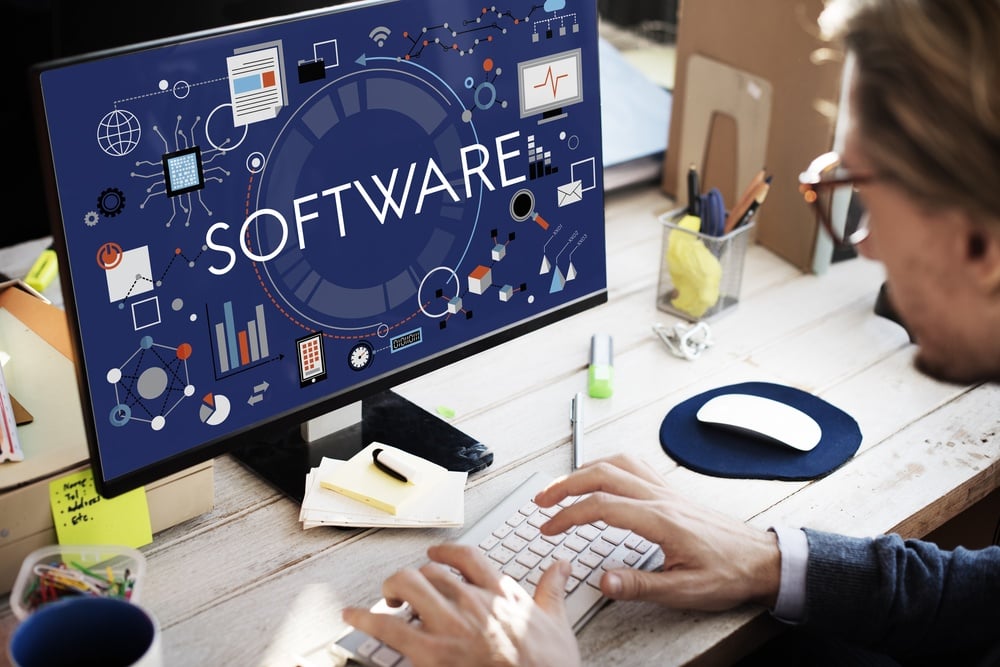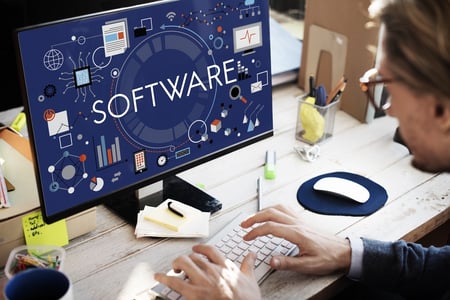Cutting the Complexity: The Importance of A Travel ERP Solution
By Nick Ostdick on Dec 13, 2016 9:43:42 AM

Today’s global travel industry is awash in complex actions and tasks travel management companies must undertake to remain competitive and acquire and retain customers. But with so many players in the travel and tourism landscape - travel agents, tour operators, and more - customers too can find themselves struggling to navigate the wealth of options, methods, and modes when it comes to researching, comparing, and completing bookings. While the needs of the customer and TMC might vary, the desire for responsive, agile, and transparent operational platforms is key.
undertake to remain competitive and acquire and retain customers. But with so many players in the travel and tourism landscape - travel agents, tour operators, and more - customers too can find themselves struggling to navigate the wealth of options, methods, and modes when it comes to researching, comparing, and completing bookings. While the needs of the customer and TMC might vary, the desire for responsive, agile, and transparent operational platforms is key.
This is where a travel ERP solution is an important value proposition on both sides of the equation, for TMCs and customers alike. The capacity of a travel ERP solution to automated workflows and back-office tasks, and fast, accurate invoicing and documentation reduce headaches for both parties by streamlining once manual, time-consuming activities and providing TMCs and customers with greater visibility across each touch point of the value chain.
Because a travel ERP solution is an integrated, comprehensive suite of software solutions, a travel ERP has the capacity to cut through the complexity associated with working with a number of suppliers, vendors, third-party clients, and other players throughout the value stream. This reduces the potential for inaccurate bookings, errors, and miscalculations in supply and demand, each of which can have significant impacts on efficiency and productivity for customers and TMCs alike.
With this in mind, the question becomes: How does a travel ERP solution enhance business operations and transactions for TMCs and customers at the same time? To address this concern, here are 3 ways in which a travel ERP solution cuts the complexity of today’s global travel industry on both the TMC and customer side.
Client-supplier relations
Managing the relationship and transactions between client and suppliers is a key driver for TMCs to foster a lean and efficient value chain - not to mention one of transparency and visibility whereby TMCs have optimal maneuverability with their products and services in terms of pricing availability, and other factors. Via web-enabled, intelligent technology, travel ERP systems can integrate with third-party systems to manage requests, quotes, and sales across channels; automatically generate associated travel and fiscal documents; leverage reporting tools to provide reliable management information; and import or export data between reporting or accounting systems. Such functionality makes it easy for TMCs to obtain, review, analyze, and share product and service data with clients and suppliers, which creates enhanced visibility across all points of the value chain from supplier to customer.
This is also an important value proposition for customers who rely on fast, efficient, and reliable customer-supplier relations in order to access the most up-to-date, accurate availability and pricing of products and services. In an era where travelers have the ability to search and source trips from a wide variety of access points, customers desire speed, accuracy, and responsive from those they work with in completing bookings.
Optimized workflows
In an age when travelers prize speed, convenience, and availability in their interactions with travel management companies, ERP solutions provide TMCs with the capacity to optimize workflows and streamline mid-back office processes to provide customers with the expediency they seek. As an example, take simple back office or operational processes like payment and invoicing: travel ERP systems automatically manage these actions, eliminating the need for manual reconciliation activities. These workflows are also highly scalable, and a common data model means management not only has more accurate operational information, it also has more visibility into, and control over, activities taking place in the business. This level of optimization allows TMCs to then focus more on the products and services they offer travelers, but also increases the speed and efficiency with which they can conduct business and manage customer relations.
What does this mean for customers? It means a greater level of customer relations and service as TMCs are better equipped to focus on forward-facing tasks rather than back-office operations. Not only does this mean travelers can experience the personal touch of working one-on-one with an actual agent or individual - which is something more and more travelers indicate as a high priority - it also means travelers feel a larger share of ownership over their bookings. This creates peace of mind for the customer and is more incentive for this customer to work with a given TMC in the future.
Reporting and troubleshooting
Perhaps in greater quantities than other industries, the travel industry contains a certain amount of uncertainty based simply on the premise that cancellations or disruptions are inevitable. Flights get delayed. Inclement weather cancels activities. Regional unrest can alter lodging or hotel accommodations. To help mitigate and manage the complexities created by this uncertainty, travel ERP solutions provides TMCs powerful data and reporting tools to help managers plan for these disruptions and create failsafe strategies to deal with them when they occur. These reporting and data analysis capabilities also help TMCs estimate and forecast; organize, plan and control; make highly informed decisions to improve operations; and increase revenues and elevate profitability.
For customers, this means an enhanced level of customer service when these disruptions occur. Because a travel ERP solution allows TMCs to react quickly and efficiently in the case of disruptions or cancellations, travelers can be afforded access to alternative bookings, products, or services with very little lead time or delay. Gone are they days when a delayed or cancelled flight meant a traveler was stranded in a certain location for a prolonged amount of time. The quick search capabilities of a travel ERP system allow TMCs to search and source an alternate flight with little time-investment and reduced disruption to the business traveler.
- travel technology (60)
- Travel Industry (49)
- travel agency (31)
- travel erp (31)
- travel trends (28)
- travel booking system (23)
- TINA (21)
- travel company (19)
- Tour Operator (18)
- Product updates (17)
- Travel Management Company (17)
- AIDA (15)
- TBS (15)
- Business Travel (14)
- dcs plus news (14)
- tour operator solution (14)
- travel website (14)
- travel erp system (13)
- Mobile App (12)
- Travel App (12)
- mid back office solution (12)
- trends (12)
- Corporate Travel (11)
- Industry Events (11)
- Mobile Technology (11)
- TMC (11)
- travel agents (11)
- erp (10)
- erp system (10)
- Tour Operators (9)
- Travel booking engines (9)
- dcs plus (9)
- online travel agency (9)
- travel agent (9)
- Mobile Bookings (8)
- travel (8)
- travel agencies (8)
- 2017 (7)
- Business Traveler (7)
- Mobile Travel (7)
- travel business (7)
- travel software (7)
- Digital Technology (6)
- Insider (6)
- Millennials (6)
- Online booking systems (6)
- Travel Management Companies (6)
- process automation (6)
- travel companies (6)
- Big Data (5)
- Partners interviews (5)
- Tour Operator Software (5)
- customer retention (5)
- travel agency technology (5)
- Booking engines (4)
- CSBT (4)
- Mobile Device (4)
- Mobile travel apps (4)
- OTAs (4)
- Static databases (4)
- Tour Companies (4)
- Travel Policy (4)
- Travel booking systems (4)
- Travel suppliers (4)
- back office automation (4)
- corporate self booking tool (4)
- millennial travelers (4)
- online travel (4)
- responsive travel website (4)
- technology (4)
- travel website conversion (4)
- 2016 (3)
- Content mapping (3)
- Databases (3)
- Demographics (3)
- Food and Adventure Tourism (3)
- Mobile Apps (3)
- Travel Distribution Channels (3)
- Travel Management Software (3)
- Travel customers (3)
- Travel history (3)
- anniversary (3)
- automated processes (3)
- content matching (3)
- global travel industry (3)
- social media (3)
- travel agency workflow (3)
- travel back office (3)
- travel marketing (3)
- travel process automation (3)
- AI in travel (2)
- Advanced Booking Systems (2)
- B2B Travel Resellers (2)
- Bleisure (2)
- Branding (2)
- Business Process Automation (2)
- Business Travelers (2)
- Customer engagement (2)
- Financial Reporting (2)
- Food Tourism (2)
- Inbound Marketing (2)
- Infographic (2)
- Leisure Travel (2)
- Saas (2)
- Templates (2)
- Travel Costs (2)
- Travel bookings (2)
- Travel start-up (2)
- Travel website abandonment (2)
- WTM 2016 (2)
- abandoned travel bookings (2)
- engagement marketing (2)
- internet booking engine (2)
- millennial traveler (2)
- new travel company (2)
- office (2)
- online reputation management (2)
- online travel reviews (2)
- reporting (2)
- software (2)
- start-up tips (2)
- travel agency management (2)
- travel agency website (2)
- travel experience (2)
- travel mobile app (2)
- travel packages (2)
- travel reservation system (2)
- travel system (2)
- travelers (2)
- web-based travel erp (2)
- 2020 (1)
- 360 Customer View (1)
- Advanced Accommodation Contract Management (1)
- Adventure travelers (1)
- Apps (1)
- B2B Reseller (1)
- B2B Resellers (1)
- B2C (1)
- BI Reporting (1)
- Budget traveler (1)
- Cancellations (1)
- Chat (1)
- Chinese millennial (1)
- Cloud (1)
- Cognitive computing (1)
- Comparison shopping (1)
- Conference (1)
- Contact matching (1)
- Content (1)
- Cruise (1)
- Culinary traveler (1)
- Customer relations (1)
- Digital Innovation (1)
- Digital Natives (1)
- Documents (1)
- Emerging market travelers (1)
- Emerging markets (1)
- Errors (1)
- Experimental travel (1)
- Financial Dashboard (1)
- Import rates (1)
- Instant messaging (1)
- Integrate with Accounting Software (1)
- Internet (1)
- Luxury traveler (1)
- Mobile Transaction (1)
- Mobile payments (1)
- NDC distribution (1)
- Operational Reporting (1)
- Reseller networks (1)
- Resellers (1)
- Response (1)
- Subagents Network (1)
- TINA Academy (1)
- TTE (1)
- Travel Reseller Network (1)
- Travel Revenue Management (1)
- Travel booking problems (1)
- Travel finance reporting (1)
- Travel stats (1)
- WTM (1)
- abandonment (1)
- accomodations (1)
- advanced reporting (1)
- airline direct connect technology (1)
- ancillary services (1)
- cloud computing (1)
- collection (1)
- collection challenges (1)
- common data model (1)
- conversion rates (1)
- corporate mobile app (1)
- cost control (1)
- credo ventures capital invests in dcs plus (1)
- customer reviews (1)
- data analysis (1)
- dcs plus credo investment (1)
- dcs plus credo ventures (1)
- deloitte technology fast 500 EMEA (1)
- digital transformation (1)
- e-invoicing KSA (1)
- email marketing (1)
- email marketing for OTAs (1)
- erp e-invoicing (1)
- lost travel bookings (1)
- modern travel agencies (1)
- networks (1)
- new features (1)
- offers (1)
- online customer review (1)
- online reputation (1)
- online travel agencies (1)
- risk management (1)
- sales (1)
- senior travelers (1)
- shopping baskets (1)
- shopping carts (1)
- social network (1)
- standardized processes (1)
- static content (1)
- travel SaaS (1)
- travel account services (1)
- travel agency customers (1)
- travel agency profitability (1)
- travel analytics (1)
- travel blog (1)
- travel planning (1)
- travel reviews (1)
- travel shopping carts (1)
- travel software for agencies (1)
- travel software system (1)
- travel technology europe (1)
- travlist smart mobile app (1)
- trend (1)
- trusted adviser (1)
- trusted advisor (1)
- upsell functionality (1)
- vouchers (1)
- website traffic (1)
- zatca (1)
Subscribe by email
You May Also Like
These Related Stories

Has Real Disruption & Opportunity Hit the Travel Management Company?

Is Your Travel Management Company Positioned for Growth?


No Comments Yet
Let us know what you think